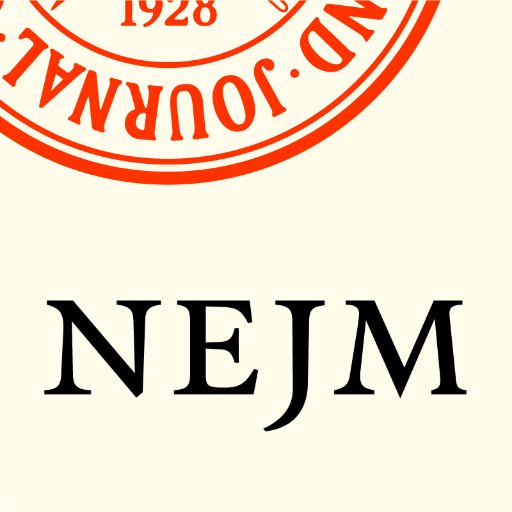
André Zimerman
@AndreZimerman
Followers
2K
Following
4K
Media
326
Statuses
1K
Head of Clinical Trials, @hospitalmoinhos 🇧🇷 | Professor, PG Cardiology, @ufrgsnoticias 🇧🇷 | Fellowship, @TIMIStudyGroup 🇺🇸 | Lipids, Trials, Cardiology
🇧🇷 Porto Alegre, Brazil
Joined May 2016
Today, I had the honor to present PhysioSync-HF as a Late-Breaking Clinical Trial at #ESCCongress. Key message: In HFrEF and LBBB, conduction system pacing was *inferior* to biventricular pacing for a composite of death, HF events, and LVEF change at 12 months.
6
36
160
Small-interfering RNA olpasiran reduced lipoprotein(a)–apolipoprotein B particles by >95% with minimal rise in non–Lp(a)-apoB, lowering total apoB concentration in patients with cardiovascular disease. https://t.co/8HndQN4K3S
1
15
46
Why does interference of apo(a) synthesis with #olpasiran also lead to a net reduction in apoB particles? Read more online now @JAMACardio @DrM_ODonoghue @AndreZimerman
https://t.co/kHovQ9lUTG
jamanetwork.com
This secondary analysis of the OCEAN(a)-DOSE randomized clinical trial investigates the effect of the small-interfering RNA olpasiran on atherogenic lipoproteins.
0
3
10
I had a great discussion with @DrJMarine on the PhysioSync-HF trial, our (unexpected) findings, and what they mean for the field. Check out our @ACCinTouch podcast episode on Spotify: https://t.co/bh1e2MojeQ
open.spotify.com
ACCEL Lite: Featured ACCEL Interviews on Exciting CV Research · Episode
The PhysioSync-HF trial investigates conduction system pacing as a potentially more effective & affordable alternative to traditional cardiac resynchronization therapy. Tune into #ACCEL Lite episode for more insights ➡️ https://t.co/nQDw42DMUa
@DrJMarine @AndreZimerman #CardioX
0
0
5
Greatly enjoyed speaking with @AndreZimerman about his trial results reported at ESC.25. Surprisingly, CSP inferior to conventional CRT in this HFrEF population. Listen to learn more! @ACCinTouch @a_l_bailey ACCEL Lite: PhysioSync-HF: Conduction System vs. Biventricular Pacing
acc.org
0
1
4
Our webinar on '25 update of European lipid guidelines has just been held, w/a very enriching discussion led by myself and @FabianaRached following presentations of @AL_Catapano., @ProfKausikRay, and @AndreZimerman Thanks to all participants. Soon online at @society_eas website.
0
3
11
👇👇👇 Thursday, October 23th at noon, Brasilia time. We will have 3 presentations, respectively by @AL_Catapano, @ProfKausikRay on combination #LLT and @AndreZimerman on #Lpa. Subtitles in portuguese. Presentations will be followed by a Q & A session. #cardiotwitter
The Lipid Clinic Network local webinars on the Focused Update are tailored sessions designed to support national dissemination of the new guidance, adapt it to local clinical priorities, and foster collaboration between international experts and national networks. Each webinar
1
2
8
🚨 BREAKING: ESC 2025 Spotlight! #HRStv host @melchami99, sits down with @AndreZimerman, and @Davilandre to break down the PhysioSync-HF trial, presented at ESC Congress 2025 in Madrid. This multicenter study compares conduction system pacing vs biventricular resynchronization
0
4
9
Painstaking , careful work from everyone involved. So much effort from the patients, ARO, CRO, and sponsor to get here. It gives a sense of pride being part of the team. Can’t wait for the severe HTG population data, where there will be more immediate impact to patients’ lives.
In patients with TGs >150 mg/dL, apoC-III inhibitor olezarsen reduced TGs by *60%*. Also lower: apoB (↓15%), non-HDL-C (↓22%), and remnant chol (↓68%). The CTA analysis will help clarify the potential CV benefit. Proud to be a part of this team. Now published in the @NEJM.
0
1
10
Targeting APOC3 with Olezarsen in Moderate Hypertriglyceridemia (Essence–TIMI 73b phase 3 trial) https://t.co/7MyHYKIIdm
#ESCCongress | @escardio
0
9
35
In patients with TGs >150 mg/dL, apoC-III inhibitor olezarsen reduced TGs by *60%*. Also lower: apoB (↓15%), non-HDL-C (↓22%), and remnant chol (↓68%). The CTA analysis will help clarify the potential CV benefit. Proud to be a part of this team. Now published in the @NEJM.
2
6
49
That was fun indeed. So great to meet you, Dr. Connolly. Very interesting data on LLT patterns in older adults that provoke us to think about implemention.
Great last session at the ESC presenting our Santorini data on older age and lipid attainment And in the same session brilliant presentation by Andre for the TIMI group on Edoxaban with the wonderful Bob Giugliano @AndreZimerman @rgiugliano @ProfKausikRay @TIMIStudyGroup
0
1
13
In AFib pts ≥80 yrs meeting dose-↓ criteria, pts randomized to edoxaban 15 vs. 30 mg had comparable rates of stroke/SE. Edox 15 mg led to a trend toward ↑ ischemic strokes but ↓ major & intracranial bleeds; supported by PK/PD analysis. @AndreZimerman @rgiugliano #ESCCongress
2
4
22
#ESCCongress #LBCT #PHYSIOSyncHF ⚡️compared conduction pacemaker vs BiV pacemaker in HFrEF with LBBB ⚡️>50% women, 💯 follow up! 👏🏽👏🏽 ⚡️primary Endpoint: worse outcomes in conduction ppm 🆚 BiV ppm: conduction pacing was shown to be inferior to BiV pacing in HFrEF +LBBB
5
29
92
And please read the AHJ design paper for more details on methods: https://t.co/d7G8XODdZT Happy to hear your thoughts.
3
2
7
These unexpected findings are generating a lot of discussion in the EP community. I'll add a few relevant slides below, for context.
2
0
3
In frail, elderly, AF patients, a randomized analysis shows that switching from warfarin to a DOAC lowered risks of stroke, ICH, and death vs. remaining on warfarin. DOACs increased bleeding overall, but magnitude varied by choice of DOAC. @rgiugliano
https://t.co/sFQV0xdWuk
0
5
12














